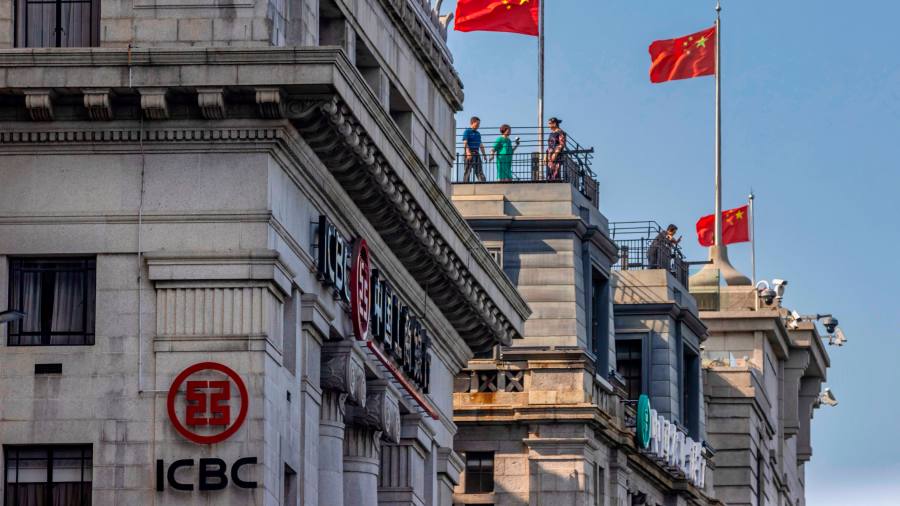The Urby apartment tower stands along the Hudson River on the skyline of the Exchange Place … [+]
New York City and the surrounding region have received a lot of negative attention about losing population. But the metropolitan area’s apartment business doesn’t appear to be feeling the effects.
For the second consecutive year, real estate professionals have ranked a portion of the metropolitan area as the best for buying apartments, according to the Urban Land Institute’s annual “Emerging Trends” report released Oct. 31.
Jersey City, New Jersey, just across the Hudson River from Manhattan rose to the top of apartment investment prospects next year among the nearly 2,000 real estate professionals surveyed for the nonprofit research and policy organization’s report. New York City’s Brooklyn borough held the No. 1 place in the influential report for this year and still has a buy recommendation on the list going into next year.
Both reflect attitudes among real estate investors that began shifting in 2022 with rent growth slowing in Sunbelt markets where apartment construction pipelines expanded to historic levels. Vacancy rates are rising to drive rents down as supply of new units exceeds demand among renters.
Buy recommendations, however, were muted in ULI’s report for 2024 compared to its report for 2023. Fewer landed the buy recommendation than in ULI’s 2023 report, and the level of enthusiasm for buying was lower. Higher interest rates played a major role in pummeling apartment investment sales this year have suppressed investment appetites as investors and owners see if there’s interest rate relief of some kind next year.
Still, Northeast and Midwest metros now lead the country in rent growth, persuading investors to eye them as potential places to snap up properties if they can strike a deal that works in the current environment. Apartment construction isn’t as rampant in these markets, and there’s enough demand to push rents higher and vacancy lower.
“New York City is the tightest market in the country from a vacancy standpoint, so renters are being pushed out to New Jersey, which has some of the strongest rent growth in the country at the moment,” said Sam Tenenbaum, multifamily economist for commercial real estate brokerage firm Cushman & Wakefield.
New York City vacancy is about 2.5%, according to Cushman & Wakefield data. And that is where vacancy was before the pandemic pushed the number to about 3.6%.
The Big Apple Population Decline
It would seem like a contradiction that a metro that lost about 400,000 in population between 2020 and 2022 would have such low vacancy.
New York City alone lost 468,000 in population in between April 2020 and July 2022, according to Census Bureau data. Today’s population sits at 8.33 million compared to 8.8 million in mid-2020. The metro, which includes Jersey City, sits at about 19.6 million people down from the peak of 20 million in 2020 but still above the historical trend.
Tenenbaum noted that household growth drives demand for apartments, not population. In New York City’s case, keeps rents growing because of factors such as difficulty in building new apartments combined with low apartment vacancy, nominal job growth and household growth, he said.
In September, the New York City market at year-over-year rent growth of 2.1% compared to Miami’s 1.2% growth, according to Apartments.com. Miami’s annual rent growth peaked at 17.2% at the end of the first quarter last year.
But vacancy in the Miami area, one of the benefactors of New York population migration, now has pushed past 7%, according to Cushman & Wakefield data. Vacancy is expected to go higher because of a construction pipeline of roughly 31,000 apartment units, which is still at at historically high level.
The New York City metro has more than 61,000 units being built, the highest in the country. But it’s a smaller percentage of existing apartment units than in Miami. Cushman & Wakefield shows the New York City metro with roughly 882,000 units, compared to Miami’s more than 120,000 such units. The firm tracks properties with 50 units more, which is generally considered investment grade.
Buy or Hold
In the ULI report, Jersey City landed the 2024 buy recommendation from 61% of the respondents. Brooklyn scored 70% last year but 53% for 2024.
Madison, Wisconsin, home to the University of Wisconsin, was a close second with 60%. Columbus, Ohio, where construction is underway on two Intel chip plants and fueling job growth, was third at 59%.
Many Sunbelts metros fell out of favor this year. Florida cities Jacksonville, Tampa and Miami dropped out of the Top 20 list, leaving West Palm Beach as the only entrant from the Sunshine state. Raleigh/Durham, North Carolina, Knoxville, Tennessee, and Oklahoma City, Oklahoma, were the only Sunbelt metros with at least 50% for buying.
Only 42% of respondents gave Nashville, Tennessee, which the report ranked No. 1 for overall real estate prospects next year and one of the country’s hottest apartment markets, gave a buy recommendation.
The bottom six in 2024 have hold recommendations above 50%. Charleston, South Carolina, San Antonio, Texas and Charlotte, North Carolina, tied with highest hold recommendation of 55%. San Antonio wasn’t on the list for 2023.
But 67% of the real estate pros surveyed last year had Charlotte as a buy this year but swung to a 40% buy in 2024. Charleston scored a 65% recommendation for this year. It, too, swung to 40% next year.
Carl Whitaker, director of research and analysis with multifamily software firm RealPage, said he was surprised to see Charleston so low. “Crazy amounts of development there but performance has been good – if not great – by national standards,” Whitaker said.
















